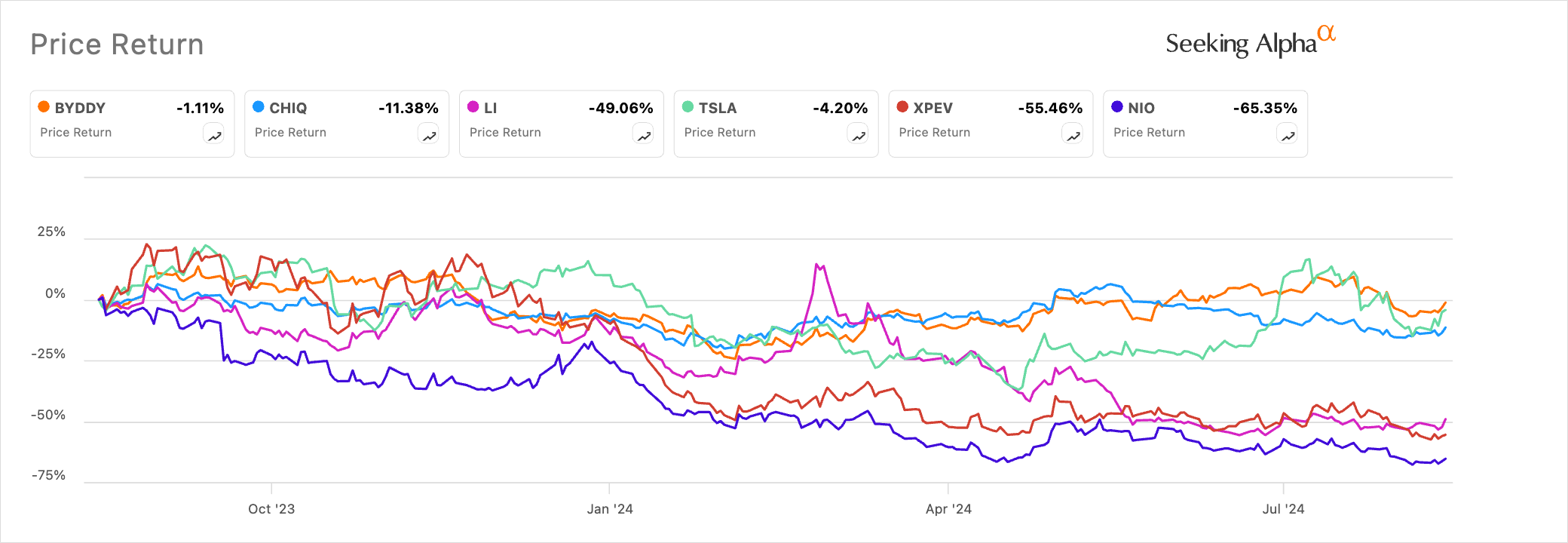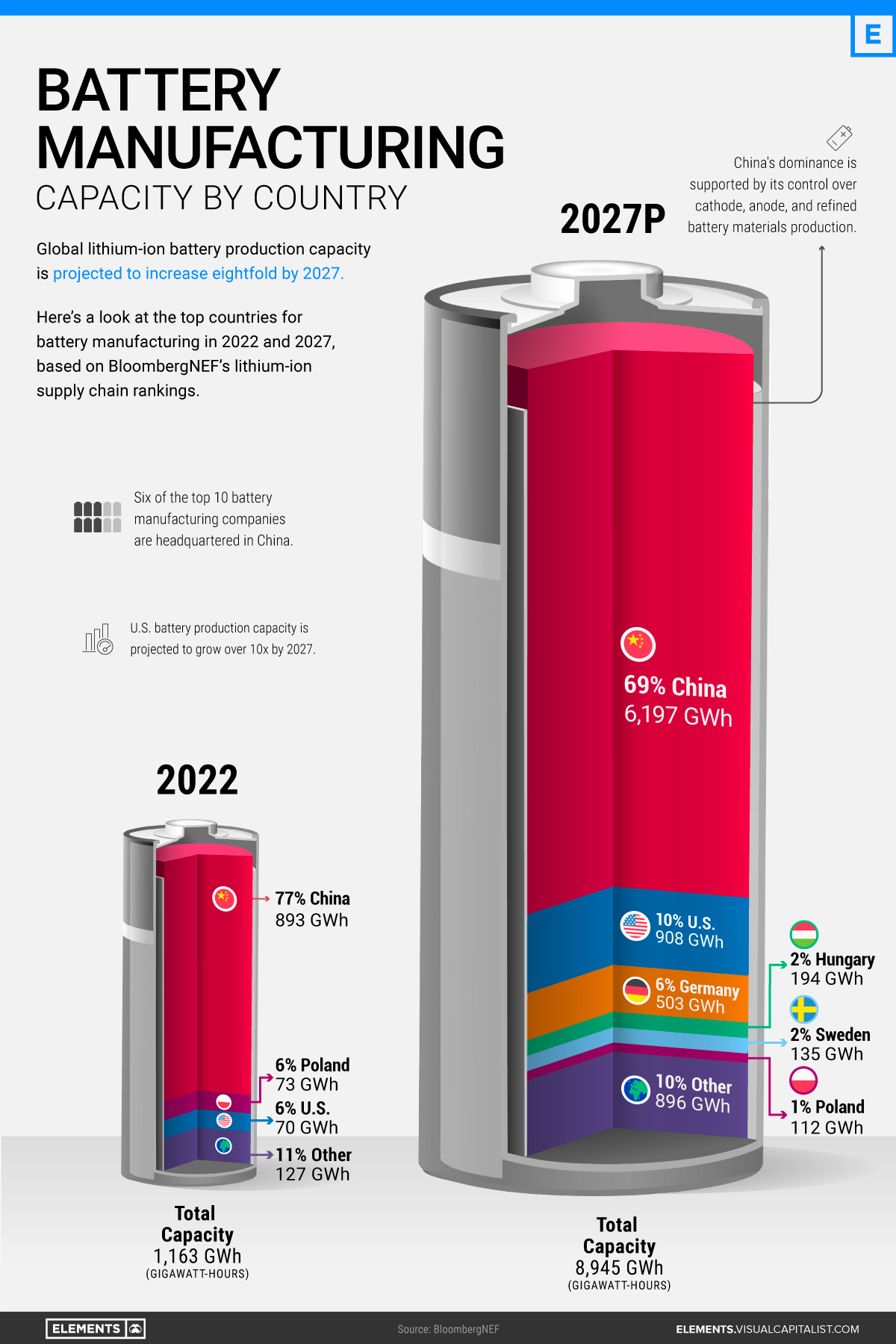BYD's 2030 Goal: Dominating Global Automotive Markets

Table of Contents
BYD's Technological Prowess and Innovation in EV Technology
BYD's technological advancements are a cornerstone of its 2030 strategy. Its commitment to innovation in electric vehicle technology sets it apart from competitors.
Battery Technology Leadership: The Blade Battery Advantage
BYD's Blade Battery technology is a game-changer. Unlike traditional lithium-ion battery packs, the Blade Battery boasts significantly improved safety, energy density, and cost-effectiveness.
- Superior Safety: Its unique design minimizes the risk of thermal runaway, a major concern with conventional EV batteries.
- Extended Range: Blade Batteries offer higher energy density, translating to longer driving ranges for BYD's electric vehicles.
- Cost-Effectiveness: The streamlined design and efficient manufacturing process make Blade Batteries more cost-competitive.
- Space Optimization: The Blade Battery's flat design allows for better utilization of vehicle space.
Electric Vehicle Range and Performance: Setting New Standards
BYD is constantly pushing the boundaries of electric vehicle performance. Its advancements extend beyond battery technology, encompassing electric motor technology and charging infrastructure.
- High-Performance EVs: Models like the BYD Han and Tang showcase impressive acceleration, handling, and overall driving experience.
- Extended Range Capabilities: Many BYD EVs offer ranges exceeding 500 kilometers (310 miles) on a single charge.
- Fast Charging: BYD is investing in fast-charging technologies to minimize charging times, enhancing the convenience of EV ownership.
Vertical Integration and Supply Chain Control: A Competitive Edge
BYD's vertical integration strategy, encompassing battery production, electric motor manufacturing, and even semiconductor production, provides a significant competitive advantage.
- Cost Control: Internal manufacturing reduces reliance on external suppliers, leading to lower production costs and enhanced profitability.
- Faster Innovation: Control over the entire supply chain allows for quicker implementation of technological advancements.
- Enhanced Quality Control: BYD maintains tighter quality control throughout the production process, ensuring superior product quality.
Expanding Global Market Reach and Strategic Partnerships
BYD's ambition extends beyond the Chinese market. Its global expansion strategy involves strategic market penetration, partnerships, and localization efforts.
Market Penetration Strategies: A Multi-pronged Approach
BYD is strategically entering and expanding in major global markets, focusing on both developed and emerging economies.
- Europe: Significant investments in European manufacturing and sales networks are driving market share growth.
- North America: BYD is establishing a presence in North America through strategic partnerships and direct sales initiatives.
- Asia: BYD continues to solidify its position as a leading EV manufacturer in its home market and other Asian countries.
Strategic Alliances and Acquisitions: Synergistic Growth
BYD's strategic alliances and acquisitions further enhance its global reach and technological capabilities.
- Technology Partnerships: Collaborations with technology companies are fostering advancements in areas like autonomous driving and connectivity.
- Distribution Partnerships: Strategic partnerships with distributors facilitate efficient market penetration in diverse regions.
Localization and Adaptation: Tailoring to Local Needs
BYD adapts its vehicles and marketing strategies to cater to the specific requirements of individual markets.
- Design and Features: Vehicle designs and features are customized to align with local preferences and regulations.
- Marketing Campaigns: Marketing strategies are tailored to resonate with local cultures and consumer preferences.
Sustainable Practices and Environmental Responsibility
Sustainability is integral to BYD's brand identity and long-term strategy. The company is committed to environmentally responsible practices throughout its operations.
Commitment to Sustainability: Leading the Green Revolution
BYD is actively reducing its carbon footprint and promoting sustainable manufacturing.
- Renewable Energy: BYD utilizes renewable energy sources in its manufacturing facilities, minimizing reliance on fossil fuels.
- Responsible Sourcing: The company prioritizes responsible sourcing of materials, ensuring ethical and sustainable procurement.
Appeal to Environmentally Conscious Consumers: A Growing Market Segment
BYD's focus on sustainability resonates with environmentally conscious consumers.
- Marketing Campaigns: BYD’s marketing effectively highlights its commitment to sustainability, attracting environmentally aware buyers.
- Positive Media Coverage: The company's sustainability initiatives garner considerable positive media attention.
Competition and Challenges in Achieving 2030 Goals
While BYD is making significant strides, achieving its 2030 goal presents considerable challenges.
Analysis of Major Competitors: A Competitive Landscape
BYD faces fierce competition from established global automakers like Tesla and Volkswagen, alongside other emerging EV manufacturers.
- Tesla: Tesla remains a dominant force in the EV market, known for its technological advancements and brand recognition.
- Volkswagen: Volkswagen is aggressively investing in its EV portfolio, posing a significant challenge to BYD's global ambitions.
Potential Challenges and Risks: Navigating Uncertainties
Several factors could impede BYD's progress towards its 2030 goal.
- Geopolitical Factors: Geopolitical instability and trade tensions could disrupt supply chains and hinder market expansion.
- Supply Chain Disruptions: Global supply chain challenges could impact production capacity and vehicle availability.
Conclusion: BYD's Path to 2030 Automotive Market Domination
BYD's ambitious 2030 goal is underpinned by its technological prowess, aggressive global expansion strategy, and strong commitment to sustainability. Its vertical integration, innovative Blade Battery technology, and strategic partnerships position it favorably in the competitive global automotive market. While challenges exist, BYD's potential for success is substantial. Stay tuned for further updates on BYD's journey towards dominating the global automotive market by 2030!

Featured Posts
-
 Okc Thunder Draft Slot Still Undecided Following Regular Season
May 13, 2025
Okc Thunder Draft Slot Still Undecided Following Regular Season
May 13, 2025 -
 A Case Study Addendum How Byd Became A Leader In Ev Battery Manufacturing
May 13, 2025
A Case Study Addendum How Byd Became A Leader In Ev Battery Manufacturing
May 13, 2025 -
 San Jose Earthquakes Fall To Columbus Crew 2 1
May 13, 2025
San Jose Earthquakes Fall To Columbus Crew 2 1
May 13, 2025 -
 Families Of Gaza Hostages Face Prolonged Nightmare
May 13, 2025
Families Of Gaza Hostages Face Prolonged Nightmare
May 13, 2025 -
 Stuttgart Open Ostapenkos Stunning Win Against Sabalenka
May 13, 2025
Stuttgart Open Ostapenkos Stunning Win Against Sabalenka
May 13, 2025
